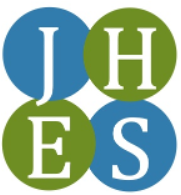ABSTRACT
Solar irrigation systems are sustainable practices that can improve the well-being of local communities and enhance the resilience of agriculture to climate change while reducing environmental impacts. Due to its high investment cost, small-scale farmers are inclined to use traditional fossil-based irrigation systems that can harm humans and the environment. This study aims to analyze the environmental impacts, economic feasibility, and social acceptability of shifting agricultural practices from diesel-fueled to solar irrigation systems. Taking the perspective of small-scale farmers from Calapan City, Oriental Mindoro, results found that solar irrigation system has a higher initial investment but lower maintenance and operational costs. These resulted in an attractive economic feasibility of the project with Php 19,693 of fuel cost savings per hectare per year, a project net present value of Php 10,214 per hectare, a payback period of 8.27 years, and returns on investment at 110%. Additionally, shifting to a solar irrigation system significantly reduces the greenhouse gas emissions from diesel at 199.78 CO2 eq/ha/yr, and avoids air pollutant emissions at 14.91 g/ha/yr particulate matter, 2.98 g/ha/yr nitrogen oxides,193.82 g/ha/yr sulfur oxides, and 149.09 g/ha/yr carbon monoxide. Despite the lack of in-depth environmental awareness, small-scale farmers are interested in investing in solar irrigation systems with 68% social acceptability. Results provide bases for recommendations on promoting more human ecologically and sustainable agriculture irrigation systems in the Philippines and other developing countries.
ABOUT THIS ARTICLE
Author and Affiliation
Charmaine Samala Guno
College of Teacher Education, Mindoro State University, Calapan City 5200, Oriental Mindoro
*correspondence: charmaine.guno@minsu.edu.ph
| Received | Revised | Accepted | Published |
| 23 October 2023 | 5 February 2024 | 15 February 2024 | 21 February 2024 |
Cite this article
Guno, C. S. (2024). Diesel to Solar Irrigation System: Economic, Environmental, and Social Acceptability Analyses by Small-Scale Farmers of Calapan, Oriental Mindoro. Journal of Human Ecology and Sustainability, 2(1), 3. https://doi.org/10.56237/jhes23015
| Google Scholar Citations: | 3 |
Rights and Permissions
This is an open-access article distributed under the terms and conditions of the Creative Commons Attribution (CC BY) license (https://creativecommons.org/licenses/by-nc-nd/4.0/), which permits unrestricted use, distribution, and reproduction in any medium, provided you give appropriate credit to the original author(s) and the source, provide a link to the Creative Commons license, and indicate if changes were made.
